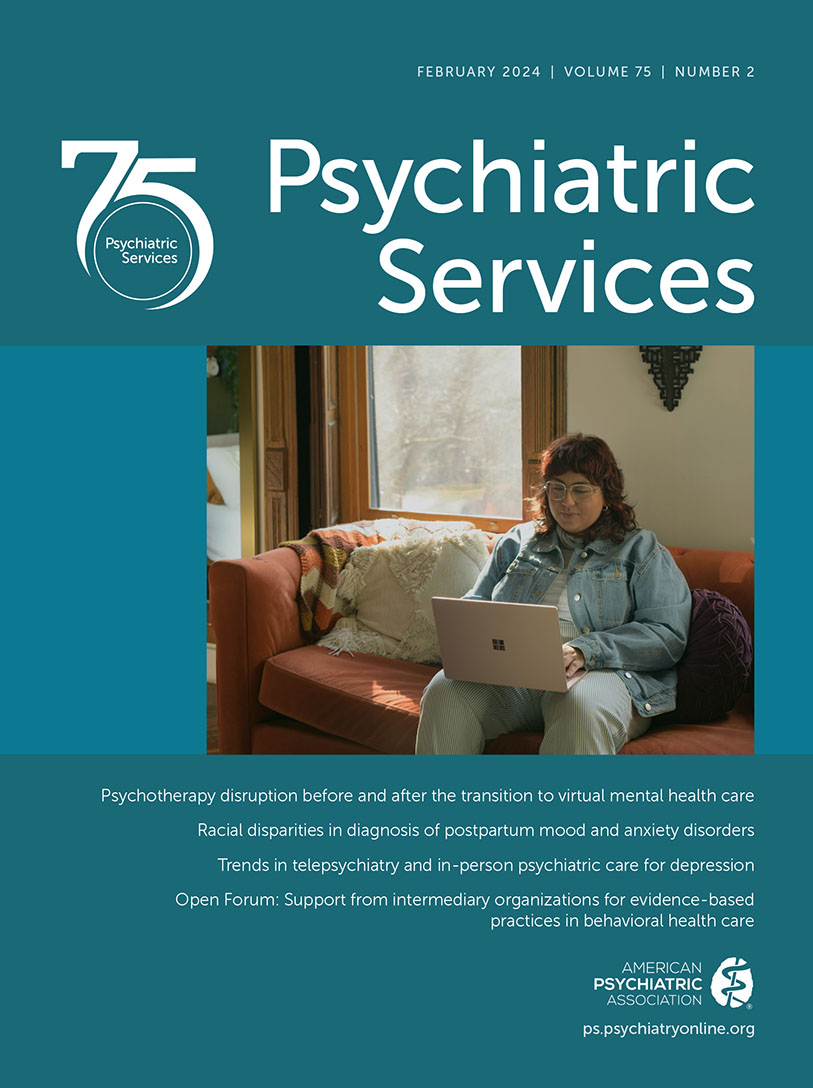Underdiagnosis of Postpartum Disorders Across Ethnic Groups
In this issue, Hall and colleagues (1) found that the rate of diagnosis of postpartum mood and anxiety disorders (PMADs) was generally low; only 19.8% of respondents with a positive two-item Patient Health Questionnaire (PHQ-2) score received a diagnosis within 3 months of delivery. More important, Black respondents were less likely than White respondents to receive a PMAD diagnosis. The presence of comorbid conditions and higher levels of life stressors were statistically linked to an increased likelihood of receiving such a diagnosis but only for the Black population. Overall, these findings suggest possible underdiagnosis of PMADs and that the rate of diagnosis varies by race, highlighting the need for tailored approaches to improve detection and diagnosis.
Additional studies have suggested that there are differences in the way patients from racial-ethnic minority groups, including Black patients, communicate with health care providers whose racial-ethnic backgrounds are dissimilar from their own. For example, Black patients may have concerns about discrimination or bias in health care settings, which could affect their willingness to disclose certain information to a provider from another racial group. A lack of diversity among health care providers can cause patients from minority groups to feel unheard and underserved or to fear being perceived as bad parents. Moreover, lack of cultural competence among health care providers can lead to misunderstandings, miscommunication, and mistrust. With previous negative experiences with health care, Black patients might be more reluctant to be open with providers as a result of stigma or shame around mental illness. Moreover, racial-ethnic minority populations often experience health care disparities, including lower-quality care, less access to health care, and poorer health outcomes.
Delving further into the literature fails to clarify whether Black patients are being underdiagnosed or whether the study findings truly reflect lower rates of PMADs among Black people compared with White people. The literature has been unclear despite several analyses of large data sets across several U.S. states. Some studies have found that Asian/Pacific Islander women were more likely to have a diagnosis of postpartum depression after their providers talked to them, whereas other studies have found that White women have the highest incidence of postpartum depression diagnosis among racial-ethnic groups. Hall et al. did not differentiate diagnosis from receipt of care for PMADs. However, the literature on the care of postpartum depression by race-ethnicity has also been mixed, and some studies have reported that Black women are more likely than women from other racial-ethnic groups to receive hospital-based care for postpartum depression. Many of these studies were based on samples from individual U.S. states.
That said, the authors affirm previous concepts about health disparities in minority groups. For example, there is no evidence that the PHQ-2 screen is a significantly less valid screener in a Black population, and therefore one would expect that depression or illness after a positive PHQ-2 screen would be similar between Black and White respondents. Underdiagnosis of Black patients with postpartum depression could result in subpar treatment on multiple levels. The structure of the current health care model allows for only minimal continuity and little time to develop a meaningful provider-patient relationship; however, multiple comorbidities and stressors lead to more visits, thus creating the opportunity for connection, which may explain the improved rate of PMAD diagnosis of Black respondents with comorbid conditions.
The findings of Hall et al. contribute to this literature and are from Michigan, a state from which rates of PMAD were not previously reported. Postpartum depression and anxiety were grouped together, with no separate presentation, which may be informative. Only Black and White patients were compared, so information about other racial-ethnic groups is unknown. Overall, the research in this area has great potential for further detailed analyses across racial-ethnic groups in large national samples and accounting for the complex interplay between sociodemographic, geographic, cultural, and other social factors that may affect access to assessment and treatment for women with postpartum disorders.
1. : Racial disparities in diagnosis of postpartum mood and anxiety disorders among symptomatic Medicaid enrollees, 2012–2015. Psychiatr Serv 2024; 75:115–123Abstract, Google Scholar



